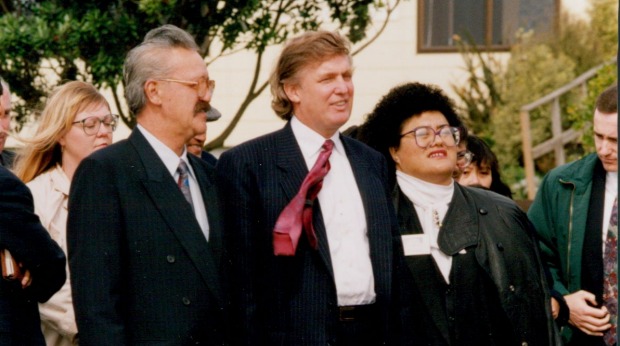 |
| John Key doesn't just lie - he scrambles the truth until barely recognisable |
Wrestling is a lot like politics - they're both centred in an arena with a moderator where a bunch of larger than life charismatic actors talk shit to each other. And to truly understand it, you really have to have grown up with it. Otherwise, nobody's gonna agree on anything. You get it in debates for something like religion. One side says his or her religion has made the world a better place! whilst the other guy says it has destroyed rational thinking and sent the human race back a thousand years. But in all honesty neither of them are right. As David Wong said, "the truth must be somewhere in between,"
But as we know, truth isn't interesting. Well, it is - if as you have an entertaining writer at the helm. For the rest of us, it's easier to exaggerate, because exaggerating is fun. Take Monsanto's roundup. I've known people who called it poison, carcinogenic to all life forms and pure, condensed evil. But my horticulture teacher insists that there is absolutely nothing wrong with it - you can very well dunk it in your chips and risk nothing to your health.
That's so annoying. For one, somebody isn't being honest. Whether it's my teacher; my friends; or the people feeding them information - someone is bullshitting here. Secondly, it's okay to be skeptical, but if you're gonna be skeptical about other skeptics, the appropriate response is not to act like there is nothing to be skeptical about in the first place. Skeptical people are different from the majority of the population, who respond to charm; charisma and anecdotal evidence (in other words, not real evidence):
If you want to convince a skeptic, on the other hand, then at least try to respect their intelligence. It may not convince them, but if that won't, nothing will. Certainly not by trying to convince them that they are not just wrong, but painfully wrong. Smart people don't like being told they're completely wrong - you have to ease them into accepting it.
But to tell someone that they're not just wrong, but painfully wrong, is not a way to convince them - it's a way to shout down an argument, and if you are the one who is lying, then it's what I call an "con-truth".
Worse than a lie or untruth, a con-truth is much more strategic: you take the polar opposite approach to your opponent,because when you do this you're confusing the situation so much that it makes it harder to be consistent with your approach, because that guy isn't just defending himself, he's accusing you of being the liar! It's a cheap debating tactic used by only the most sociopathic of people, especially politicians.
Take this scenario: Imagine the floor is open in parliament: The opposition party starts by saying "this government is corrupt". He brings to the table all sorts of statistics and testimonies to prove that the government is definitely, undeniably corrupt. In response, the spokesperson retorts that "Yore wrong. This is the least corrupt government ever,. The only corruption was the previous Labour government".
Aaaand Stop.
Let that dialog sink in.
| 'Bitch you better believe I just said that.' |
This is why John Key frequently blames the previous labour government when facing tough parliamentary questions. He doesn't do it for the quality of the argument. It's a stupid argument. Nobody cares what the Fifth Labour Government did. They could have been the Third Reich for all we care, but it doesn't make a single bit of difference to whatever the hell parliament is talking about today.
 |
| Or they could have been Vampires. Nazi Vampires. |
And make no mistake: in politics it's all about points. It's like gambling. You win some, you lose some. Things that would embarrass us as normal humans have little effect on politicians, because it's all a part of the game. We frequently look at elections as picking the lesser of two evils - well, politicians every day face tough questions, and they have to choose the lesser of two evil responses.
John Key knows evil well, and is skilled at selecting the right one. He's made a career from doing whatever he has to do to succeed. Picked the good choice? Great. Forced to pick the bad choice? Accept it and move on, and think positive.
That's why success gurus won't shut up about the importance of positive thinking, and when you've based a career on it, you won't give it up easily, even if you're forced to convince yourself of not just a lie, but to directly oppose the truth. Liars are just sad people who run away from truth, Con-Men use con-truths to bend reality to their will.
Of course, when neither option looks good, you can always just respond that "most New Zealanders don't care about that". Nothing beats playing into good old fashioned apathy.
Because in a way, that's one of the few occasions he is telling the truth.


